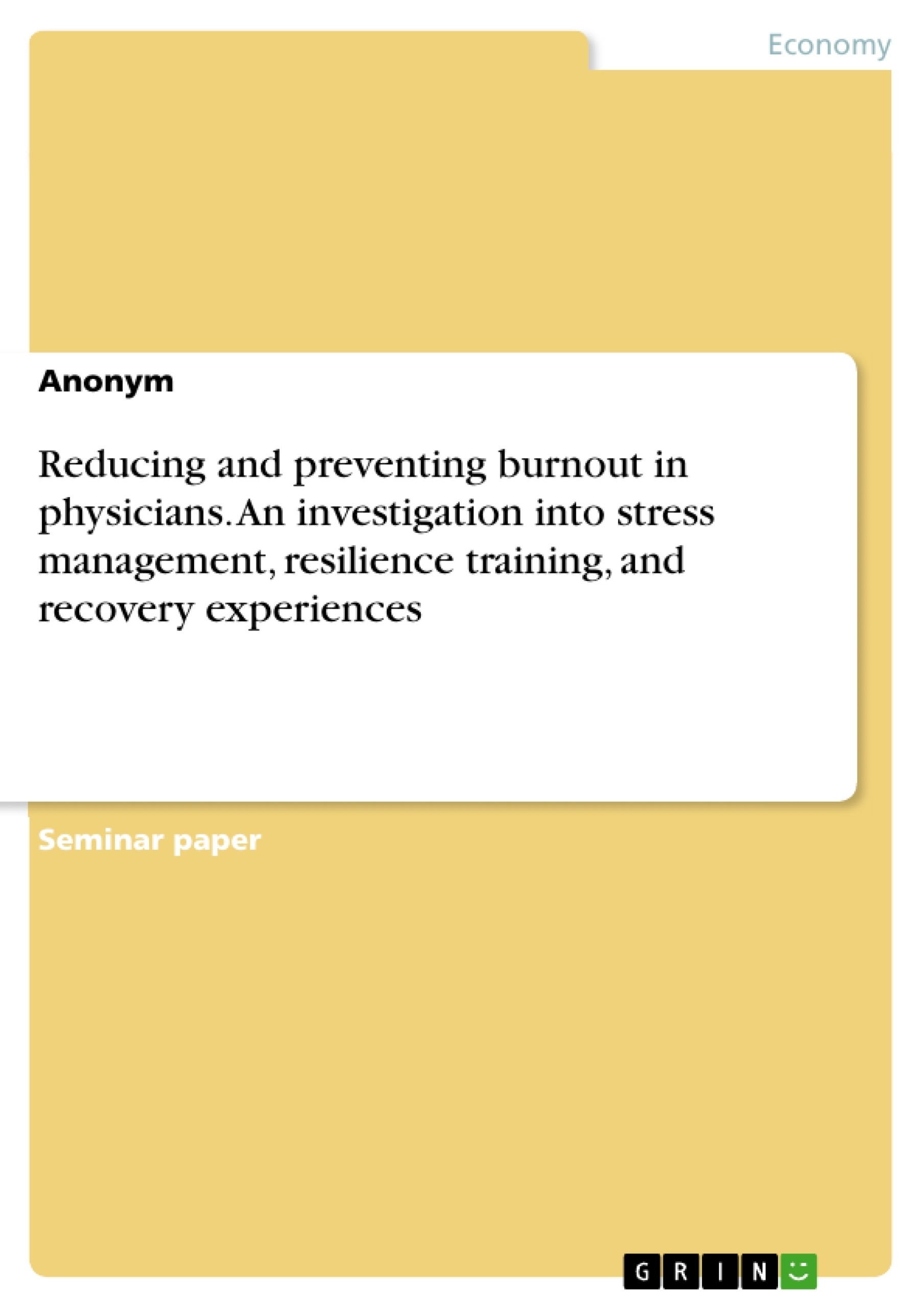A literature-based seminar paper that addresses the following research question: How can burnout among physicians be reduced? The author explains various theories and concepts and makes recommendations. First, this paper defines key terms such as recovery, burnout, and resilience. Then, ways to reduce or prevent burnout are presented. These are methods such as stress management, resilience training, psychological competence training or counseling.
Inhaltsverzeichnis (Table of Contents)
- Introduction
- Research question
- Concepts
- Recovery
- Conservation of Resources
- Effort-Recovery Model
- Burnout
- Resilience
- Recovery
- Ways to reduce or prevent burnout
- Stress Management and Resilience Training
- Psychosocial skills training
- Mindfulness based Resilience training
- Counselling
- Recovery Experiences
- Detachment
- Mastery experiences
- Recovery Training Program
- Relaxation
- Discussion, Conclusion and Suggestions
- Summary of strategies
- Conclusion and Advise to Organizations
- Suggestions for further research
Zielsetzung und Themenschwerpunkte (Objectives and Key Themes)
This article aims to provide a comprehensive overview of the current research on burnout prevention in physicians. It examines various theoretical models and practical strategies that organizations can implement to mitigate the risk of burnout among medical professionals.
- The importance of employee well-being and its relationship to productivity and burnout
- The prevalence of burnout in the healthcare profession and its impact on physicians and organizations
- The theoretical frameworks of recovery, burnout, and resilience as key concepts in understanding burnout
- Strategies for preventing or reducing burnout, including stress management, resilience training, and psychosocial skills development
- The significance of recovery experiences and their role in mitigating burnout
Zusammenfassung der Kapitel (Chapter Summaries)
- Introduction: This chapter establishes the context by highlighting the importance of employee well-being and its impact on organizational productivity. It also emphasizes the high prevalence of burnout among healthcare professionals, particularly physicians, and the negative consequences for both individuals and organizations.
- Research question: This chapter presents the research question: How to reduce burnout in physicians? This question sets the stage for the investigation into various strategies and interventions that can be employed to prevent or mitigate burnout.
- Concepts: This chapter delves into key theoretical concepts relevant to burnout prevention, including recovery, burnout, and resilience. It explores different models and definitions of these concepts, providing a foundational understanding for the subsequent discussion of strategies.
- Ways to reduce or prevent burnout: This chapter outlines practical strategies for reducing or preventing burnout in physicians. It covers various interventions, such as stress management and resilience training, psychosocial skills development, mindfulness-based training, counselling, and recovery experiences.
Schlüsselwörter (Keywords)
This article focuses on the prevention of burnout in physicians, examining key concepts such as recovery, burnout, and resilience. It investigates various strategies, including stress management, resilience training, and psychosocial skills development, as well as the importance of recovery experiences. The study aims to contribute to the understanding of burnout and its mitigation in the healthcare profession.
- Quote paper
- Anonym (Author), 2022, Reducing and preventing burnout in physicians. An investigation into stress management, resilience training, and recovery experiences, Munich, GRIN Verlag, https://www.grin.com/document/1312270




